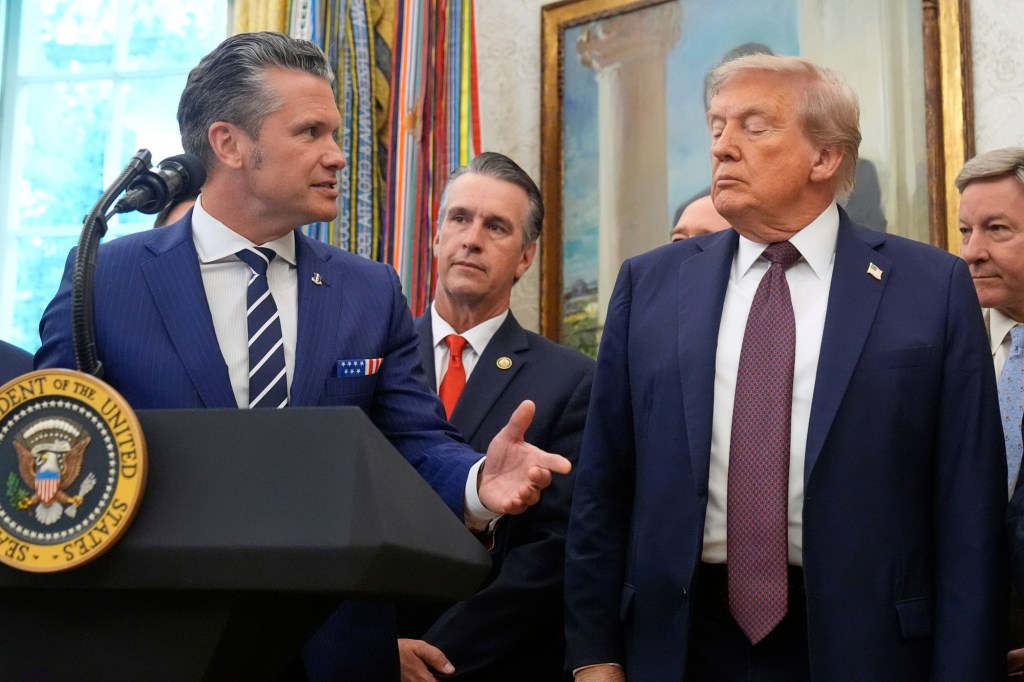
If a speedboat heading north from South America allegedly filled with illegal drugs — and, for some reason, crewed by fully 11 people — turns around, turns south in the open sea, is it still intent on “invading” the United States in order to unload its nefarious cargo?
If, in fact, the boat is not at all heading for the U.S. but rather to Trinidad and Tobago, is it still part of some invasionary force?
If American military forces don’t really know who’s onboard, though is fairly sure that they are civilians, not members of Venezuela’s or some other country’s own armed forces, is the fast boat still a legitimate military target?
If the United States Navy doesn’t really have a good answer for these perfectly ordinary questions, can it really in good conscience engage in lethal military action, killing 11 civilians on the high seas?
Well, these aren’t perfectly ordinary times, and the answer to all the questions would seem to be, “We’ll just do as we please, or rather as we are ordered to do by the commander in chief, legalities and international norms be damned.”
That’s the kind of arrogant cowboyism that the current secretary of defense, now the self-styled secretary of war, is engaging in when he says, as Pete Hegseth did last week, “We smoked a drug boat, and there’s 11 narco terrorists at the bottom of the ocean, and when other people try to do that, they’re going to meet the same fate.”
The crew would indeed appear to be at the bottom of the Gulf of Mexico, because the Navy wasn’t satisfied with disabling the speedboat with a single powerful strike, but kept bombing it to smithereens after the initial hit.
The ordinary thing to do during the many decades in which the military has been involved in attempting to stem the flow of illegal drugs coming toward our country by boat would be for the Navy, which has no arresting authority, to do the military part, and the Coast Guard, which does have the power of arrest, to take alleged smugglers into custody and deal with them through ordinary legal channels.
Because the Trump administration has offered no evidence about who the dead are, or what they were carrying, or why it took 11 people to run some drugs, we have no idea if they were really members of the Venezuelan Tren de Agua gang, as the White House alleges. But we do not that the ordinary terms of legal military engagement don’t include killing low-level drug mules as if they were members of a foreign armed force. In fact, some experts in international — and American — law say that to summarily kill civilians with military force is itself a crime.
The administration claims that the operation was one of self-defense, using the logic that drug overdoses kill on the order of 100,000 Americans annually, many of them from illegally imported fentanyl, and that since this boat may have been carrying fentanyl, then there’s your self-defense.
“Novel” is the charitable way to characterize such a legal argument; “flimsy” would be more realistic.
“If someone is retreating, where’s the ‘imminent threat’ then?” Rear Adm. Donald J. Guter, a retired top judge advocate general for the Navy from 2000 to 2002, told The New York Times. “Where’s the ‘self-defense’? They are gone if they ever existed — which I don’t think they did.”
Rear Adm. James E. McPherson, the top judge advocate general for the Navy from 2004 to 2006, who served in the first Trump administration as general counsel of the Army, added: “I would be interested if they could come up for any legal basis for what they did. … If, in fact, you can fashion a legal argument that says these people were getting ready to attack the U.S. through the introduction of cocaine or whatever, if they turned back, then that threat has gone away.”
Sen, Rand Paul, R-Kentucky, called it “despicable and thoughtless” to glorify killing people accused of crimes without trials.
That it is. It’s un-American, too.



